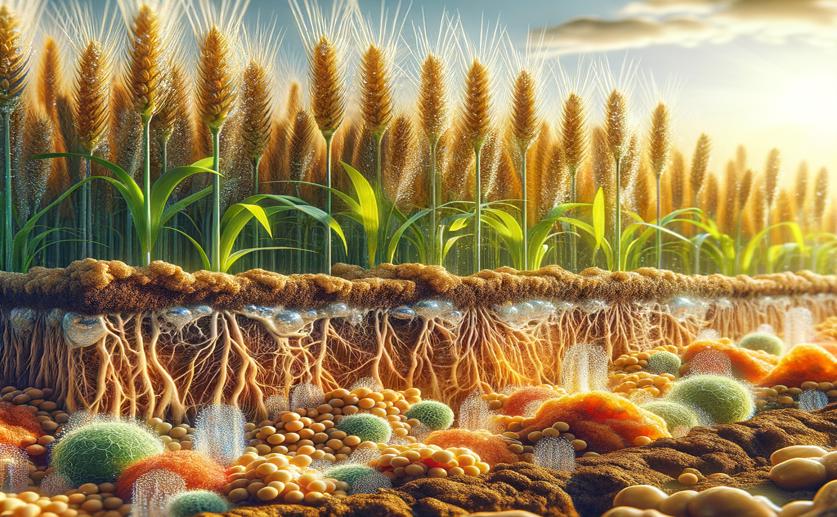
Boosting Wheat Yields in Salty Soil with Poultry Manure and Helpful Microbes
Jim Crocker
19th May, 2024

Image Source: Natural Science News, 2024
Key Findings
- The study by the University of Agriculture, Faisalabad, Pakistan, explored the effects of selected microbes and poultry manure on wheat growth in saline soil
- The use of microbial strains and poultry manure significantly improved seedling emergence, physiological attributes, and nutrient uptake in wheat grown in saline soil
- The combined application of microbes and poultry manure mitigated the negative impacts of soil salinity, enhancing wheat growth and yield
AgricultureSustainabilityPlant Science
References
Main Study
1) Enhanced wheat productivity in saline soil through the combined application of poultry manure and beneficial microbes
Published 18th May, 2024
https://doi.org/10.1186/s12870-024-05137-x
Related Studies
2) Minimizing hazard impacts of soil salinity and water stress on wheat plants by soil application of vermicompost and biochar.
3) Potassium Control of Plant Functions: Ecological and Agricultural Implications.
4) Municipal solid waste (MSW): Strategies to improve salt affected soil sustainability: A review.



 5th May, 2024 | Greg Howard
5th May, 2024 | Greg Howard